Behind the News
Behind the News: All the backstories to our major news this week
Published
9 months agoon
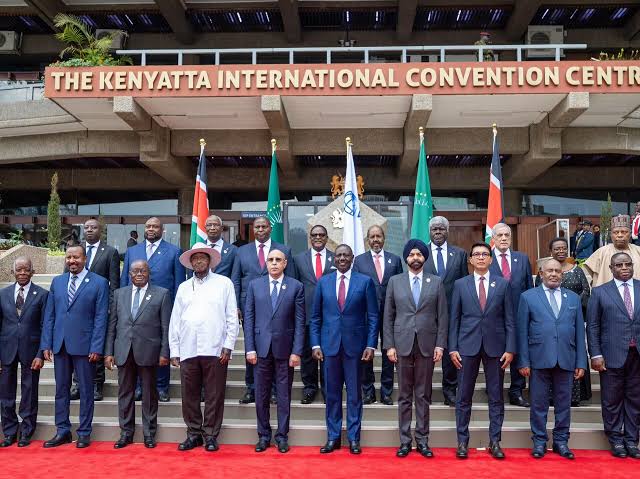
Over the past week, there were many important stories from around the African continent, and we served you some of the most topical ones.
Here is a rundown of the backstories to some of the biggest news stories in Africa that we covered during the week:
Different takes as African leaders spotlight multilateral loans
The call for a reform in the financial instrument of multilateral bodies like the International Monetary Fund (IMF) and the World was at the front burner in the week as African leaders on Monday called for rich countries to commit to record contributions to a low-interest World Bank facility for developing nations. The leaders stressed that most African countries depend on the fund to sponsor development and combat climate change.
Kenya’s President William Ruto told a meeting of African leaders and the World Bank to discuss IDA funding, “call on our partners to meet us at this historic moment of solidarity and respond effectively by increasing their IDA contributions… to at least $120 billion.”
Ruto has been a notable voice in the call. Last year, during a session at the Paris Climate Summit, he called for a new global financial architecture outside the present creditor system which according to him tilts in favour of lenders like the IMF and the World Bank.
“We need a financial consumption tax at a global level that countries like Kenya pay, we do not want anything for free, we will pay more eventually because we have a bigger economy. We want those resources controlled not by IMF and World Bank because IMF and World Bank have the final say…,” Ruto said.
The World Bank has maintained that IDA lends money to 75 poor countries around the world at low-interest rates. More than half of these countries are in Africa. Governments use the money to improve access to healthcare and energy, put money into farms, and build important things like roads.
But Ugandan President, Yoweri Museveni, expressed a fresh perspective to the discourse at the same event as he urged African leaders to verify the true intentions of multilateral lending institutions towards the continent. He asked African leaders to “audit the intentions of the World Bank loans to ensure that they are for prosperity rather than profiteering”. He added: “What loans are we getting as Africa? Is the World Bank giving us loans for private sector-led growth or to be more dependent?”
“Our populations are increasing, but our economies are stunted. The International Development Association (IDA) should tell us why they are funding the modern slavery of Africans, and we should address issues like why Africa is producing what it does not consume and consuming what it does not produce”, the Ugandan leader stated.
Interventions by multilateral bodies have remained controversial in some cycles although the bodies have claimed that poverty reduction is one of their objectives, but some studies have shown that IMF borrower countries experience higher rates of poverty. A 2022 research by Glen Biglaiser and Ronald J. McGauvran which investigated the effects of IMF loan conditions on poverty using a sample of 81 developing countries from 1986 to 2016, found that IMF loan arrangements containing structural reforms contribute to more people getting trapped in the poverty cycle, as the reforms involve deep and comprehensive changes that tend to raise unemployment, lower government revenue, increase costs of basic services, and restructure tax collection, pensions, and social security programmes.
Liberia enacts war crimes court; who should follow?
Liberia’s President Joseph Boakai has signed an executive order to establish a war crimes court. Boakai granted his final approval and congratulated the lawmakers for their effort in the legislation. A special court was eventually ordered to be established to try those who were deemed to be at fault by the Truth and Reconciliation Committee.
Many atrocities, such as rape, massacres, and the use of child soldiers, occurred during the wars that lasted from 1989 to 2003. In their fight against rebels affiliated with the Liberians United for Reconciliation and Democracy (LURD), government forces in Liberia have been accused of war crimes as well as grave violations of human rights, such as the widespread rape of women and girls, the summary execution of numerous civilians, and the looting and burning of entire villages.
Without warning or predetermined protocol, hundreds of civilians were allegedly arbitrarily and forcibly conscripted and deployed to fight on the front lines, frequently with little to no military training. The LURD troops have also been alleged to have committed grave crimes such as rape, forced recruitment of civilians, including child soldiers, and summary killings of suspected government collaborators.
Activists and civil society organizations that have demanded greater justice for crimes committed during the conflicts that claimed the lives of almost 250,000 people have praised the initiative. Some in Liberia are against its development, arguing that it could weaken the amnesty law that was already in place and cause old grievances to resurface. This helped put a stop to the violence.
Most African countries have a shared history of civil wars and internal crises that have made calls for special courts to try war popular in the continent. Nigeria, Rwanda, Ethiopia, Sudan, Congo DR have recorded thousands of deaths of civilians occurring in separate conflicts of armed groups. Some of those killings are also categorized as war crimes and crimes against humanity, with most cases unsolved and consequential agitations in cases for self-determination and secession by aggrieved section of the state, which account for the volatile nature of most African states.
Liberia’s template which has birthed a special war crimes court might be a direction to follow in states with these experiences, first to afford victims closure through justice and likely deterrent for likely war crime offenders but much still lies on the political will of the state to ensure justice despite the special court.
Scrabble for Niger as US accuses Russia over military base incursion
Despite remaining under military reign and retaining consequent pariah status in the international community, West African country, Niger Republic, appears to remain a toast for world powers as the United States and Russia had their latest confrontation over the country during the week. Russian military personnel have reportedly made their way into an American military air base in Niger, according to a senior US defence official cited by Reuters. This move follows the junta in Niger’s decision to expel American personnel.
Until a coup last year, the country had been a vital ally for Washington’s fight against insurgents who had killed hundreds of people and displaced millions more. Mali, Libya, Chad, the Central African Republic, and other nations on the continent have looked to Russia for security cooperation. Russian paramilitary soldiers have now landed in Niger, isolating the United States and compelling its 1,100 military personnel to leave the country for the next few months.
America will lose access to a vital military facility it needs to combat terrorist organizations like ISIS as a result of Russia’s increasing influence in Niger. To strike terrorist bases in the area, intelligence gathered from the U.S. drone base in Niger is crucial. In what global politics observers have labelled a “failed strategy” Cameron Hudson, a former intelligence officer for Africa at the CIA, referring to countries with coup governments in Africa noted that “when all of these countries kicked out the French and turned inward, we then tried to pivot to become the peacemaker in the hopes that we could keep our presence there.” “All of that is not working. We are now out. Russia is now in.”
According to US law, Washington is not allowed to give money to coup regimes like the one in Niger. However, in an attempt to eventually restore military and other financial support, American leaders have made an effort to retain diplomatic ties with those nations, many of which have abundant natural resources.
A few African leaders have praised Moscow’s participation, arguing that in situations where the United States is unable to offer prompt security support, Moscow can. Some have resisted American efforts for reform, arguing that the West has no right to preach democracy in Africa when it ignores comparable problems with its friends elsewhere in the world.
On Africa and long-distance race at the Olympic
Ahead of the 2024 Summer Olympic Games in Paris, France, Athletics Kenya named their six-man team on Wednesday. The team consists of three men and three women, with one reserve on each side. The team is led by Hellen Obiri, Benson Kipruto, and Eliud Kipchoge, the reigning champions. A “killer squad” the team has been called by sports enthusiasts giving the track record of the East African country at long-distance races. Kenyan and regional neighbours Ethiopian athletes have dominated the middle- and long-distance sports since the 1968 Mexico City Olympics. They have also shown a similar level of dominance in international cross-country and road racing competitions.
Benson Kipruto, the winner of the Tokyo Marathon, and Alexander Mutiso, the winner of the London Marathon, are both picked in the final Kenyan Olympic team. Timothy Kiplagat, the runner-up in Tokyo, will be backup in case any of the three chosen athletes are unable to compete. As she travels to Paris in fine form, having set a new women’s only world record last month by winning the London Marathon, Jepchirchir will have an opportunity to defend her championship with the final team list.
Their success has attracted significant attention on a global scale and has been the focus of social, sporting, and even scholarly studies. Genetic predisposition, development of high maximal oxygen consumption as a result of extensive walking and running at an early age, and comparatively high haemoglobin and hematocrit were some of the factors identified by Randall L. Wilber and Yannis Pitsiladis.
Developing a good metabolic “economy/efficiency” based on somatotype and lower limb characteristics, having an advantageous oxidative enzyme profile and skeletal-muscle-fiber composition, living and training at altitude, following a traditional Kenyan/Ethiopian diet, and having the drive to succeed economically are additional factors. However, although the variety of physiological and anatomical explanations appear tenable for the dominance, no definitive advantage has been found through research as athletes from other parts of the world like Asia and North America with little or no features peculiar to East Africa have had considerable success in long-distance also.
East Africa will continue counting its medals with pride while the search continues.
You may like
-


World Bank suspends loan fees for impoverished countries
-
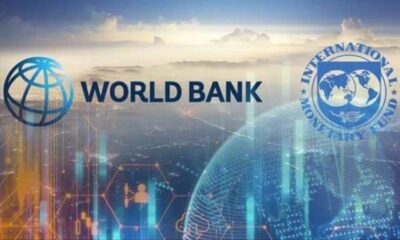

World Bank doubts Ethiopia-IMF debt assessment
-
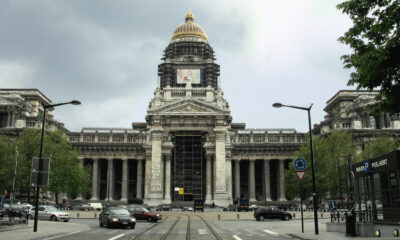

Court rules against Belgium in historic lawsuit challenging colonial acts in Africa
-
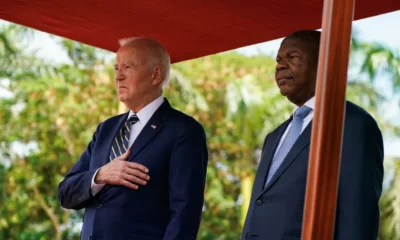

Biden to commemorate US-Angola slave trade
-


MTN partners LEO Satellites to extend connectivity to remote regions in Africa
-
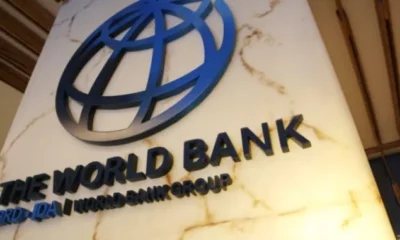

Nigeria: 25 states to get $500m W’Bank loan
Behind the News
Behind the News: All the backstories to our major news this week
Published
3 months agoon
October 18, 2024
Over the past week, many important stories from around the African continent were published, and we served you some of the most topical ones.
Here is a rundown of the backstories to some of the biggest news in Africa that we covered during the week:
Another look at Africa’s debt crisis
Conversations around Africa’s public debt were on the table during the week as Achim Steiner, administrator of the United Nations Development Programme, stated on Monday that the world’s poorest countries were unable to meet sustainable development targets because they had to prioritise debt payments over investments.
Addressing a gathering in Hamburg, Steiner asserted that the world financial crisis was impeding countries’ ability to accomplish the objectives, which include eradicating hunger and poverty, increasing access to healthcare and education, providing sustainable energy, and protecting biodiversity.
Since the COVID-19 pandemic’s pervasive effects on economies, the majority of the continent’s nations have suffered with both internal and international debt; yet, few have achieved much in the fight for debt restructuring under the G20 framework.
Numerous African nations, including Egypt, Tunisia, Nigeria, Ghana, Zambia, and others, are struggling with significant foreign debt. Together with Zambia and Ghana, Ethiopia will be a part of a thorough restructuring known as the “Common Framework.”
At the opening ceremony of the annual African Union summit in Ethiopia last year, UN Secretary-General Antonio Guterres made the case for changes to the international financial system’s structure to better meet the requirements of developing nations.
Africa’s whole external governmental debt as of 2021 was 726.55 billion USD. The amount of foreign public debt increased from 696.69 billion dollars in comparison to the previous year.
Concerns are being raised by the rising debt levels in Africa, which could not only hinder economic growth but also make repayment nearly difficult for many of these nations. This begs an important question: When does debt stop being beneficial and instead start to negatively impact a nation’s economic performance?
Kenya remains committed to Haiti, but what does it stand to gain?
Kenya will support an international anti-gang effort in Haiti next month by dispatching an additional 600 police officers there. Haiti’s prime minister was in Kenya to expedite the deployment of the military.
At least eleven countries have pledged to send more than 2,900 soldiers to participate in the Multinational Security Support (MSS), led by Kenya.
Kenya, whose participation in international peacekeeping missions is longstanding, declared earlier this year that it would be deploying 1,000 police personnel, citing as a starting point its assistance to a bordering country.
Approximately 600,000 individuals have been internally displaced due to gang conflict, and hundreds of thousands of aspiring migrants have been deported back to Haiti, where approximately 5 million people are facing extreme famine. October marks the end of the mission’s first 12-month term. As gang violence worsened in 2022, Haiti turned for the first time to foreign assistance.
Nevertheless, it failed to identify a leader prepared to assume the helm and numerous foreign governments were reluctant to back the unelected administration in the desperately poor nation.
Kenya gains significant political value by sending its troops to Haiti on the international scene. Kenya has gained international recognition as a trustworthy ally that is eager to assist other nations. The mission opens up various opportunities. Prior to deployment, Kenyan law enforcement forces will receive specialist training and equipment. In the long term, this will increase the force’s capacity. Of course, there are monetary rewards as the participating nations receive allocations of resources. Because troops will receive additional pay, officers are very interested in being deployed overseas.
Cameroon: ‘Healthy’ Biya remains out of sight
Cameroon’s president, Paul Biya can now be likened to the proverbial cat with nine lives as the 91-year-old has remained “healthy” following latest reports of his death during the week. Rumours have been circulating about Cameroonian President Paul Biya’s possible death in a military hospital in France due to his extended absence. This rumour stems from Biya’s prolonged absence following the September China-Africa Summit when he was anticipated to head back to Cameroon almost away.
As of November 6, 1982, Biya, who is 91 years old, has been in office for 42 years. He is the oldest head of state in Africa, the longest-lasting non-royal national leader worldwide, and the second-longest serving president overall. According to rumours, Biya’s oldest son Franck Emmanuel Biya may be named as his replacement for “continuity” in France.
Since its political independence from France and Britain in the early 1960s, Cameroon has only had two presidents. The country is currently dealing with two serious crises: a deadly Boko Haram insurgency in the north and a separatist conflict that has claimed thousands of lives.
President Biya is one of several long-serving African leaders, including Yoweri Museveni of Uganda, who has been in office since 1982, and Teodoro Obiang Nguema Mbasogo of Equatorial Guinea, Rwanda’s Paul Kagame is also gradually evolving into the group.
Things get tougher for embattled Kenyan Deputy President
During the week, the deputy president of Kenya was impeached by the National Assembly due to charges of corruption and abuse of power. In a vote held Tuesday night, lawmakers decisively decided to remove Rigathi Gachagua from office. The Senate will now decide what will happen to the deputy president.
Parliament adopted a proposal to remove Kenya’s deputy president from office, and on Wednesday, the matter was brought to the Senate for consideration. The National Assembly heard a nearly ninety-minute defence of troubled deputy president Rigathi Gachagua and his allies prior to the vote.
A surge of protests targeting President Ruto’s government has been occurring in Kenya over the last four months due to accusations of corruption made by certain lawmakers and government officials. High taxation and the parliament’s purported inability to act independently of the president were other issues that Kenyans objected to. Gachagua refutes the accusations made by certain lawmakers, who claim that the deputy president assisted in planning rallies against the government.
He supported Ruto in his election victory in 2022 and assisted in obtaining a sizable portion of the vote from the populated central Kenya region. Gachagua, however, has mentioned feeling marginalised in recent months, despite extensive claims in the local media that he and Ruto have strained political ties.
After widespread protests over unpopular tax increases in June and July that claimed more than 50 lives, Ruto sacked the majority of his cabinet and appointed members of the main opposition.
Gachagua infuriated many in Ruto’s coalition by comparing the government to a business and implying that people who supported the coalition had first claim to development projects and jobs in the public sector. Ruto has not yet publicly commented on the impeachment proceedings.
Behind the News
Behind the News: All the backstories to our major news this week
Published
4 months agoon
October 3, 2024
Over the past week, many important stories from around the African continent have been published, and we have served you some of the most topical ones.
Here is a rundown of the backstories of some of the biggest news in Africa that we covered during the week:
Musings on CBN rates across Africa: Ghana, Nigeria, and South Africa
During the week, many African countries announced monetary policy decisions. The Central Bank of Nigeria decided unanimously on Tuesday to raise its benchmark interest rate by an additional 50 basis points, to a new record high of 27.25%. This is the sixth hike in a row this year. The decision was made in an effort to reduce inflation, strengthen the naira, and draw in capital. Governor Olayemi Cardoso reaffirmed the bank’s commitment to controlling inflation and underlined how several rate hikes have contributed to its moderation.
Nigeria’s West Africa neighbour followed suit on Friday as the Bank of Ghana reduced its benchmark monetary policy rate by 200 points to 27% at a normal meeting. With inflation having slowed and disinflationary pressures mounting, this is the first decline in eight months and the steepest since March 2018. August 2024 saw a fifth consecutive month of decline in Ghana’s annual consumer inflation, which was still much higher than the central bank’s medium-term target range of 6% to 10%. The country’s annual inflation rate dropped to a nearly two-and-a-half-year low of 20.4% from 20.9% in July.
A week prior, as anticipated, the South African Reserve Bank decreased its benchmark interest rate by 25 basis points to 8% after holding seven consecutive meetings at a 15-year high of 8.25%. As price pressures decreased, the SARB is loosening policy for the first time since the epidemic in 2020
As monetary varying shifts across the continent continue, African nations are still facing numerous severe shocks and significant structural challenges, such as rising food and energy prices brought on by geopolitical tensions like Russia’s invasion of Ukraine, climate issues that impact agriculture and energy production, and ongoing political instability.
Africa’s real GDP growth slowed to 3.1% in 2023 from 4.1% in 2022 as a result of this difficult climate. With growth predicted to reach 3.7% in 2024 and 4.3% in 2025, the economic picture is projected to improve going ahead, underscoring the resilience of African countries.
Zambia and its post-drought plans
Zambia’s finance minister, Situmbeko Musokotwane stated on Friday that the nation intends to quickly recover from its worst drought in living memory and cut its budget deficit in half the following year.
The minister stated in a budget address that the copper producer hopes for a 6.6% growth in 2025, as opposed to a projected 2.3% increase in 2024. The country is aiming for a speedy recovery. as the government crop assessment data shows that over nine million people are affected in 84 of the 117 districts after suffering through the driest farming season in over forty years, which has led to considerable crop losses, an increase in livestock deaths, and worsening poverty,
Real GDP increased gradually between 2022 and 2023, from 5.2% to 5.8%. The supply side was driven by mining and quarrying, wholesale and retail commerce, and agriculture; the demand side was driven by consumer and business spending. Food prices, transit expenses, and the nominal exchange rate are the key drivers of inflation, which is expected to remain elevated and reach 11.0% and 10.9% at the end of 2022 and 2023, respectively.
The economic challenges faced by Zambia are exacerbated by the drought, especially when considering its debt load. Its debt restructuring talks under the G20 Common Framework have progressed far more slowly than was originally anticipated when the Common Framework was first proposed.
In 2017, Zambia was placed under debt distress, and as a result, non-concessional lending from multilateral development banks was discontinued. It’s possible that by overestimating sovereign risks, the main credit rating firms exacerbated the debt crisis and dealing with a post-drought crisis might just be another “too high hurdle”
As the World Bank and Uganda LGBTQ saga continues
The World Bank is taking more action in support of Uganda’s LGBTQ community. The global lender announced on Wednesday that it is implementing steps to guarantee that lenders to Uganda are not subjected to discrimination due to a severe anti-gay law. According to a World Bank representative, both new and continuing projects would be subject to the procedures, which also include an impartial monitoring system to guarantee compliance.
Same-sex partnerships are forbidden and punishable by life in prison; similarly, anyone convicted of “aggravated homosexuality” faces the death penalty. The Anti-Homosexuality Act (AHA) was passed by Uganda, a largely conservative nation, in May of last year and it has led to considerable Western censure and US penalties.
Other than Uganda, several African nations have strict laws that discriminate against individuals who identify as LGBTQ. Hakainde Hichilema, the president of Zambia, issued a warning in March to supporters of the LGBTQ movement to stop endorsing homosexuality. He also asked that Zambia “maintain laws that abhor alien orientations like gayism and lesbianism.”
South Africa, which has a constitution that forbids discrimination based on sexual orientation, was the first and only African nation to legalise same-sex marriage in 2006. Some African nations, such as Angola, Mozambique, Botswana, Lesotho, Mauritius, and Seychelles, have laws that are favourable to the continent’s population but Uganda appears to be unbothered or tempted despite the many causes and costs of its anti-gay stand.
Ahead of Tunisia’s presidential election
During the week, another Tunisian presidential candidate Ayachi Zammel was convicted and sentenced to six months imprisonment for using “fraudulent certificates” as opposition voices in the North African country continue on attack as President Saied positions himself for what is likely to be a reelection, as all but one of the opposition candidates are either incarcerated or have had their eligibility ruled invalid by the Tunisian electoral commission.
On September 19, a third candidate who had received the election commission’s approval was sentenced to 20 months in prison. Saied, who is currently running for reelection for a second five-year term, was originally elected in 2019 as an anti-establishment candidate who pledged to combat poverty and eradicate corruption. However, in 2021 he declared that he would rule by decree after overthrowing Mohamed Ennaceur and the elected parliament, a move denounced as a coup by the opposition and the international community.
Additionally, he has deployed more oppressive strategies, which may indicate that he is not confident in his ability to win with conviction. His severe actions could indicate a new stage in Tunisia’s democratic backsliding and foreshadow more crackdowns and turmoil during an inevitable second term.
Meanwhile, concerns exist over potential voting turnout as well. Under Saied, Tunisia has conducted three elections, with dismal voter turnout in each. Less than one-third of voters cast ballots in favour of a new constitution that solidified Saied’s power and overthrew the 2014 charter in July 2022. After Saied dismissed the previous legislature in December 2022, only 11% of voters cast ballots for new members of parliament, which is among the lowest turnout percentages ever recorded in a national election worldwide. The next December, Saied called elections for a new second house of parliament, repeating this dubious performance.
EDITOR’S PICK


Nigeria: Marketers predict further price cut as another refinery begins operations
Oil marketers and the Nigerian Midstream and Downstream Petroleum Regulatory Authority expect refined petroleum product prices to reduce as another...


Kenya: Consumer inflation rises to 3.0% from 2.8%
Kenya’s statistics agency said on Tuesday that Kenya’s consumer price inflation increased slightly to 3.0% year-over-year in December from 2.8%...


South Africa’s Transnet’s half-year deficit hits $117m
Transnet, a state-owned logistics company in South Africa, announced on Tuesday that it had lost 2.2 billion rand ($117.48 million)...


Nigeria, China extend $2bn currency swap deal
A 15 billion yuan ($2 billion) currency-swap arrangement between China and Nigeria has been extended to boost investment and commerce...


Egypt’s central bank maintains overnight rates
As anticipated, Egypt’s central bank has maintained its overnight interest rates, stating that although inflation was predicted to drop significantly...


Illicit flows cost Nigeria, others $1.6bn daily— AfDB
According to the African Development Bank (AfDB), illicit money flows and profit shifting by multinational corporations doing business in Africa...


‘Don’t start what you can’t finish’, ex-Nigerian official replies President Tchiani
Former Nigerian Aviation Minister, Femi Fani-Kayode, has told President Abdourahamane Tchiani of Niger Republic to refrain from making infantile and...


Again, Starlink raises prices of its services in Nigeria
Elon Musk’s satellite internet service provider, Starlink, has again jacked up the prices of its services in Nigeria after an...


Former President of Moroccan club Raja sentenced to 3 years in prison
The former President of Moroccan top club, Raja Casablanca, Mohamed Aouzal, has been sentenced to three and a half years...


Zambia announces second case of Mpox as country battles cholera outbreak
The Zambian Ministry of Health has reported a second case of Monkeypox, popularly known as Mpox, in Kitwe region of...


